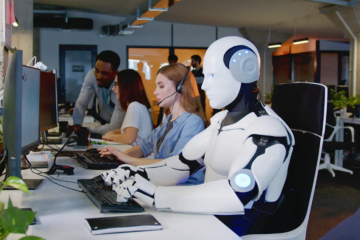Introduction
The advent of artificial intelligence has revolutionized various sectors, and the music industry is no exception. AI music generators have emerged as powerful tools that enable the creation of music with minimal human intervention. These innovative technologies harness the power of machine learning to compose, produce, and even perform music. This article delves into the world of AI music generators, exploring their workings, features, benefits, and future prospects.
What Is AI Music Generator?
AI music generator is a software or algorithm designed to create music autonomously. These systems utilize advanced machine learning techniques to analyze vast amounts of musical data, learning patterns and styles from different genres and artists. By doing so, they can generate original compositions that mimic human creativity. With tools like the AI song generator, the possibilities for unique and innovative music are virtually endless. Unlike traditional music production tools, AI music generators can produce music without direct input from a musician or composer. This technology democratizes music creation, allowing anyone, regardless of their musical background, to generate high-quality music. As we proceed, we will explore how these fascinating tools function and what makes them a game-changer in the music industry.
How Does AI Music Generator Work?
AI music generators operate through a complex interplay of algorithms and data analysis. Let’s break down the process:
Data Collection and Preprocessing
AI music generators start by collecting a vast array of musical data from various sources. This data includes different genres, styles, and compositions. The collected data is then preprocessed to ensure it is clean and organized, ready for analysis.
Machine Learning Algorithms
Once the data is preprocessed, machine learning algorithms come into play. These algorithms analyze the patterns, structures, and features within the music. Through techniques like neural networks, the AI learns to identify and replicate musical elements such as melody, harmony, rhythm, and dynamics.
Music Generation
After the learning phase, the AI uses its acquired knowledge to generate new music. It can compose entire pieces, suggest chord progressions, create melodies, and even add accompaniments. The generated music can be tailored to specific genres or styles, offering a versatile tool for musicians and producers. Many people turn to solutions like the Suno AI alternative to find the best fit for their creative needs.
User Interaction
Many AI music generators also feature user-friendly interfaces that allow users to interact with the AI. Users can input parameters such as mood, tempo, and genre, guiding the AI in creating music that meets their specific needs.
Key Features of AI Music Generator?
AI music generators come equipped with a range of features that make them highly versatile and user-friendly.
Customizable Outputs
AI music generators can produce music tailored to the user’s preferences. Users can specify various parameters, such as genre, tempo, mood, and style, to generate personalized compositions that meet their specific needs.
- Customizable parameters enhance user control.
- Users can generate music in different genres.
- Ability to adjust tempo and mood for desired output.
Integration with Other Tools
These generators can seamlessly integrate with other music production tools, enhancing their functionality and utility. Integration capabilities allow users to incorporate AI-generated music into their projects easily.
- Compatibility with digital audio workstations (DAWs).
- Easy import and export of music files.
- Enhances workflow efficiency for producers and composers.
Real-Time Composition
Some AI music generators offer real-time composition capabilities. This feature allows users to generate music on the fly, making it ideal for live performances and instant music creation.
- Real-time music generation for live events.
- Immediate feedback and adjustments.
- Facilitates improvisation and creative exploration.
How to Get Started with AI Music Generator?
Getting started with an AI music generator is a straightforward process. Follow these steps to begin your musical journey with AI:
- Choose an AI Music Generator: Research and select an AI music generator that suits your needs. Consider factors such as features, ease of use, and integration capabilities.
- Create an Account: Sign up for an account on the chosen platform. Many AI music generators offer free trials or demo versions.
- Explore Features: Familiarize yourself with the platform’s features. Take time to understand how to customize parameters and integrate the tool with your existing setup.
- Start Generating Music: Input your preferences and let the AI generate music for you. Experiment with different settings to explore the full potential of the tool.
- Incorporate into Projects: Once satisfied with the generated music, incorporate it into your projects. Use the integration features to import the music into your DAW or other production tools.
Benefits of Using AI Music Generators?
AI music generators bring a multitude of advantages to the table, making them invaluable tools for both amateur musicians and seasoned producers. These benefits stem from the unique capabilities of AI to analyze, learn, and create music in ways that were previously unimaginable.
- Efficiency and Speed: AI can compose music quickly, significantly reducing the time required for creating tracks. This is especially useful for projects with tight deadlines or for generating background scores on demand.
- Cost-Effective Production: By automating the composition process, AI music generators reduce the need for hiring composers or session musicians, lowering production costs.
- Creative Experimentation: These tools enable users to explore and experiment with different musical styles and genres, pushing the boundaries of creativity without the constraints of traditional music theory.
- Accessibility for Non-Musicians: AI democratizes music creation, allowing individuals without formal musical training to produce high-quality music, thus broadening the pool of music creators.
- Consistency and Precision: AI ensures a high level of consistency in music production, eliminating human errors and maintaining a standard quality across compositions.
- Volume and Scalability: AI can generate a large volume of music quickly, making it ideal for applications that require extensive soundtracks, such as video games, films, and advertising.
Limitations of AI Music Generator?
Despite their benefits, AI music generators have certain limitations that users should be aware of.
- Lack of Emotional Depth: AI-generated music may lack the emotional depth and nuance of human compositions.
- Dependency on Data: Quality of generated music depends on the quality and diversity of the input data.
- Limited Creativity: AI can mimic but not truly innovate, potentially leading to repetitive or derivative outputs.
- Technical Challenges: Requires technical knowledge to use advanced features and integrate with other tools.
- Ethical Concerns: Raises questions about authorship and copyright in AI-generated works.
- Limited Genre Proficiency: May struggle with genres that rely heavily on human interpretation and improvisation.
Future Development of AI Music Generator?
The future of AI music generators looks promising, with advancements in technology paving the way for more sophisticated tools. As machine learning algorithms become more advanced, AI music generators will be able to produce music with greater complexity and emotional depth. Integration with other emerging technologies, such as virtual reality and augmented reality, could create immersive musical experiences. Moreover, AI’s role in collaborative music creation is expected to grow, with tools that facilitate real-time collaboration between humans and AI. This synergy could lead to groundbreaking innovations in music production, offering unprecedented opportunities for creativity and expression.
Conclusion
AI music generators represent a fascinating intersection of technology and art, offering powerful tools for music creation. While they have their limitations, the benefits they provide in terms of efficiency, accessibility, and creative exploration are undeniable. As technology continues to evolve, AI music generators will likely become even more integral to the music industry, opening new horizons for musicians, producers, and music enthusiasts alike.
Keep an eye for more news & updates on Discover Tribune!




